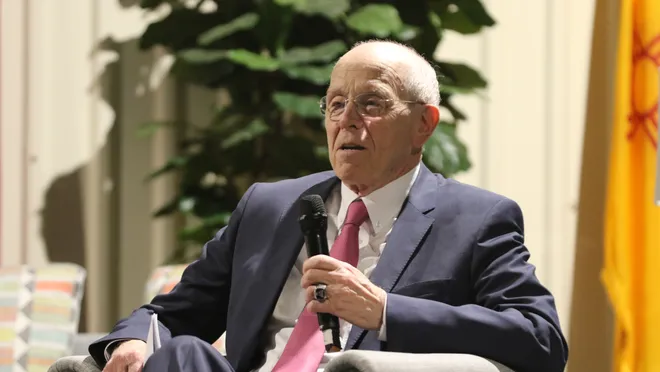 The U.S. oil industry faces a new oil price war if shale production rebounds next year by rising 1 million bpd compared to this year, Scott Sheffield, chief executive at shale giant Pioneer Natural Resources, said at BloombergNEF’s annual summit.
The U.S. oil industry faces a new oil price war if shale production rebounds next year by rising 1 million bpd compared to this year, Scott Sheffield, chief executive at shale giant Pioneer Natural Resources, said at BloombergNEF’s annual summit.
Last year, the OPEC+ group broke up their production pact in March after demand started crashing in the pandemic and U.S. crude oil production had hit 13 million bpd in the weeks prior to the start of the pandemic.
“OPEC and Russia were upset that we grew too much,” Sheffield said at the summit. “If we ever start growing again too much, we’re going to have another price war,” the shale executive added.
Sheffield continues to believe—as he did earlier this year when Saudi Arabia surprised the market with an extra cut of 1 million bpd—that U.S. oil production will not surge again because operators are very much aware of the consequences of soaring output and will continue to keep disciplined spending.
“If we grow another million barrels a day next year, we’re going to have another price war in my opinion going into ‘23,” Sheffield told the BloombergNEF summit.
One million bpd growth is basically the increase the EIA predicts for U.S. crude oil production in 2022 compared to the average for Q2 2021. As per EIA’s latest estimates, U.S. oil production is set to increase from an average 10.9 million bpd in the second quarter to nearly 11.4 million bpd by the fourth quarter. In the fourth quarter next year, U.S. oil production is expected to average above 12 million bpd—at 12.18 million bpd.
Pioneer’s Sheffield, however, said he was “totally against” that forecast, noting that he believes U.S. shale would maintain the pledges to not rush to boosting output.
Large listed producers promise restraint, and the market, and even OPEC+, believe restraint will indeed be the case for the U.S. oil industry this year. However, $60 oil makes boosting production too tempting for the private operators, since higher production and cash flows help them grow and pay off debts, without Wall Street breathing down their necks whether they are spending within their means.




0 Comments